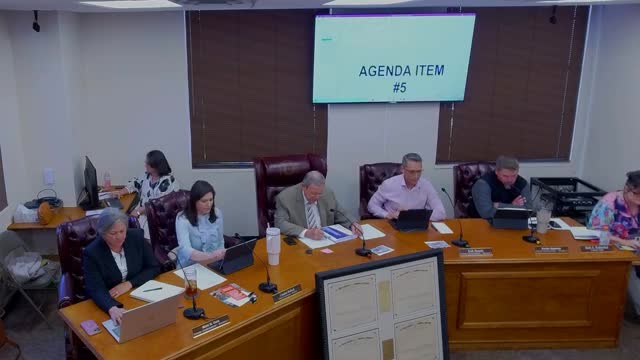County hears delinquent tax and fines report, tax sale scheduled for May 6
Get AI-powered insights, summaries, and transcripts
Subscribe
Summary
Outside counsel presented a county delinquent tax and JP fines report, describing account categories, collection rates and the county’s first tax sale scheduled for May 6.
Washington County Commissioners Court heard a presentation on delinquent tax and fine collections from Leslie Scottie of Purdue, Grama, Felder, Collins, and Mott LLP on Tuesday.
Scottie, who brought an associate, outlined the composition of the county’s delinquent roll, explained collection strategies and said the appraisal district continues to collect more than 95% of current levies, leaving a smaller delinquent roll for outside collection work. She said the largest category of delinquent accounts is litigation (suits) at 33% of accounts, followed by action pending (30%), deferrals (22%) and partial pay (7%).
Scottie told the court that historical collection data showed roughly 60% of the base outstanding for tax year 2022 had been collected and about 56% of what was turned over in July 2023 had been collected so far. She said Washington County’s first tax sale is scheduled for May 6, with additional dockets staggered through the year for the district courts. Scottie also described JP fines and fees work, noting more than half of some JP accounts had been resolved through payment or dismissal and that the firm mails postcards to defendants to encourage court resolution.
Key points from the presentation - Account categories: litigation/suit (33%); action pending (30%); deferral (22% — typically taxpayer over 65 or disabled on homestead); partial pay/payment agreements (7%). - Dollar ranges: largest share of accounts by count in $1,000–$2,500 range; larger dollar accounts often in deferred status or litigation. - Historical collections: ~60% collected of 2022 roll turned over; ~56% of 2023 roll collected to date. - Tax sale: first county tax sale scheduled for May 6; weekly statewide tax sale notices available by website subscription.
Scottie recommended continuing title work, contacting lienholders before filing suits and coordinating with the appraisal district to maximize collections. Commissioners asked operational questions, including whether the firm works for taxing districts (Scottie said yes, including municipal utility districts) and about the water code tool of termination for unpaid standby fees. No formal action was taken on the presentation.
